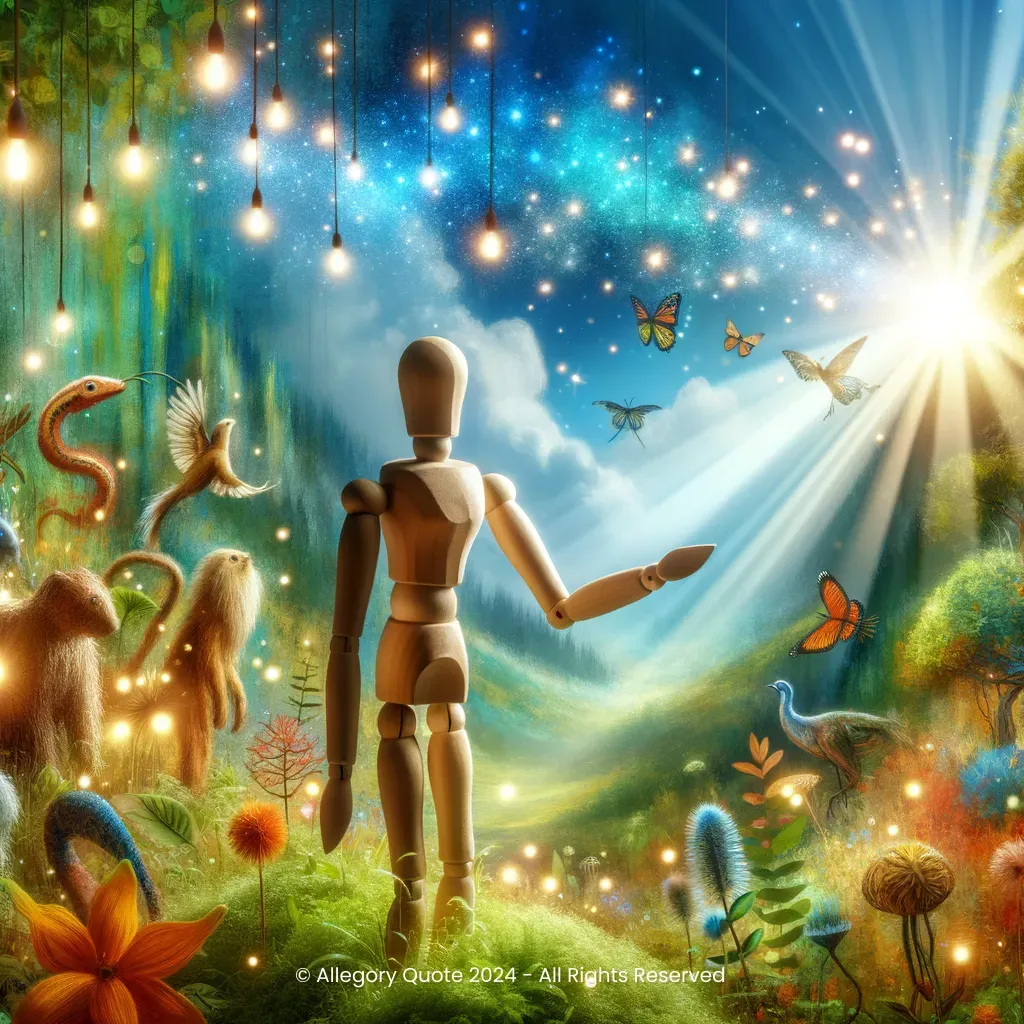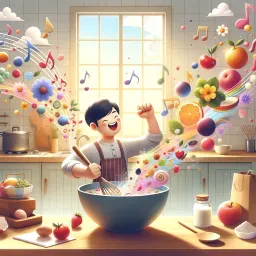I’m a real boy!

0
0
0
0
- Meaning
- This phrase encapsulates themes of authenticity and self-acceptance. Philosophically, it touches on the human condition, raising questions of what it truly means to be 'real'—whether it's in terms of emotions, relationships, or existence. Psychologically, it reflects the quest for identity and the struggle to realize one's true self, paralleling human experiences of growth and self-discovery.
- Allegory
- The elements in the allegorical image relate directly to the phrase by portraying the journey of transformation from a puppet to a real boy. The whimsical nature represents the innocence and wonder of childhood, while the sparkling lights symbolize dreams and aspirations. The vibrant creatures in the background reflect the diversity of experiences one encounters while searching for authenticity, and the sunlight signifies hope and the beauty of becoming one's true self.
- Applicability
- The phrase can inspire individuals to reflect on their own identities and the authenticity of their actions. By embracing who they are and striving for personal growth, one can cultivate a sense of self-worth and purpose, similar to Pinocchio’s journey towards becoming a real boy.
- Impact
- The impact of this phrase is significant in literature and film; it embodies the universal desire for acceptance and belonging. It has inspired countless adaptations, discussions, and even psychological interpretations regarding identity. The phrase is often quoted in discussions about self-realization and personal journey.
- Historical Context
- The historical context of the phrase dates back to the late 19th century with the publication of Collodi's work, during a time when literature for children began to reflect broader societal themes regarding identity and morality. It showcased a shift towards narratives that prioritized emotional growth and self-awareness in characters.
- Criticisms
- Critics argue that the emphasis on becoming 'real' may suggest that inherent worth is conditional or based on external validation. This raises questions about conformity and societal pressures that individuals face in defining their identities.
- Variations
- In various cultures, there are stories reflecting the theme of transformation and a quest for authenticity, similar to Pinocchio. In Japanese culture, for example, the concept of "karoshi" relates to the stress of societal expectations, reflecting a yearning for true self beyond those constraints.
-

There’s no place like home.
-

Ohana means family.
-

It’s not the destination, it’s the journey.
-

It is in forgiving that we are forgiven.
-

A spoonful of sugar helps the medicine go down.
-

The past can hurt, but the way I see it, you can either run from it or learn from it.
-

Let it go.
-

Just because you are a character doesn't mean that you have character.
-

Start by doing what's necessary; then do what's possible, and suddenly you are doing the impossible.
-

For the strength of the Pack is the Wolf, and the strength of the Wolf is the Pack.
-

What doesn't kill you makes you stronger.
No Comments